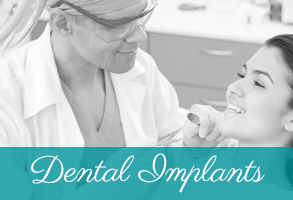

A beautiful smile can have a positive impact on your self-confidence and self-esteem.

Why are my teeth so important?
Your teeth vary in shape and size depending on their position within your mouth. These differences allow the teeth to do many different jobs. Teeth help us to chew and digest food. They help us to talk, and to pronounce different sounds clearly. Finally, teeth help to give our face its shape. A healthy smile can be a great asset and because this is so important, it makes sense to give your teeth the best care possible.
What can go wrong?
Tooth decay can lead to fillings, crowns or inlays. If tooth decay is not treated, the nerve of the tooth can become infected and die, causing an abscess. This may then need root canal treatment. Gum disease is the largest cause of tooth loss in adults. Gum disease is a treatable, preventable condition and can be kept under control with regular check-ups, preventing further problems. If teeth are lost, it may be necessary to fill the gaps with bridges, dentures or implants.
How do I keep my teeth and gums healthy?
It is easy to get your mouth clean and healthy, and keep it that way. A simple routine of brushing and cleaning between the teeth, good eating habits and regular dental check-ups can help prevent most dental problems. Although most people brush regularly, many don’t clean between their teeth and some people don’t have dental check-ups. A few small changes in your daily routine can make a big difference in the long run. Your dentist or dental hygienist can remove any build-up on your teeth and treat any gum disease that has already appeared. But daily dental care is up to you, and the main weapons are the toothbrush and interdental cleaning. (Cleaning between the teeth).
What is plaque?
Plaque is a thin, sticky film of bacteria that constantly forms on your teeth. The plaque reacts with food, turning sugar into acid, which then dissolves the enamel on your teeth.
How can plaque cause decay?
When you eat foods containing sugars and starches, the bacteria in plaque produce acids, which attack tooth enamel. The stickiness of the plaque keeps these acids in contact with teeth. After the teeth are attacked in this way many times, the tooth enamel breaks down forming a hole or cavity.
How can plaque cause gum disease?
Plaque can harden into something called calculus (another name for it is ‘tartar’). As calculus forms near the gumline, the plaque underneath releases poisons causing the gums to become irritated and inflamed. The gums begin to pull away from the teeth and the gaps become infected. If gum disease is not treated promptly, the bone supporting the teeth is destroyed and healthy teeth may be lost. Gum disease is the biggest cause of tooth loss in adults and can lead to dentures, bridges or implants.
How can I prevent gum disease?
It is important to remove plaque and food debris from around your teeth as this will stop your gums from swelling and becoming infected. If you leave plaque on your teeth it can develop into tartar, which can only be removed by the dentist or hygienist. It is important to keep up your regular appointments so that your teeth can have a thorough cleaning if they need it.
Back to top
How do I know if I have gum disease?
Gum disease (gingivitis) will show itself as red, swollen gums that bleed when brushed or flossed. Many people are alarmed when they notice this bleeding and will then brush more gently, if at all. It is important that you continue to clean regularly and firmly in order to fight the condition.
Why is brushing important?
Daily brushing and cleaning between your teeth is important because it removes plaque. If the plaque isn’t removed, it continues to build up, feeding on the food debris left behind and causing tooth decay and gum disease
Which type of toothbrush should I use?
Your dentist or dental hygienist will be able to recommend a toothbrush to you. However, adults should choose a small to medium size brush with soft to medium multi-tufted, round-ended nylon bristles or ‘filaments’. The head should be small enough to get into all parts of the mouth: especially the back of the mouth where cleaning can be difficult. Children need to use smaller brushes but with the same type of filaments.
You can now get more specialised toothbrushes. For instance, people with sensitive teeth can now use softer bristled brushes. There are also smaller headed toothbrushes for those people with crooked or irregular teeth.
Some people find it difficult to hold a toothbrush, for example because they have Parkinson’s disease or a physical disability. There are now toothbrushes, which have large handles and angled heads to make them easier to use.